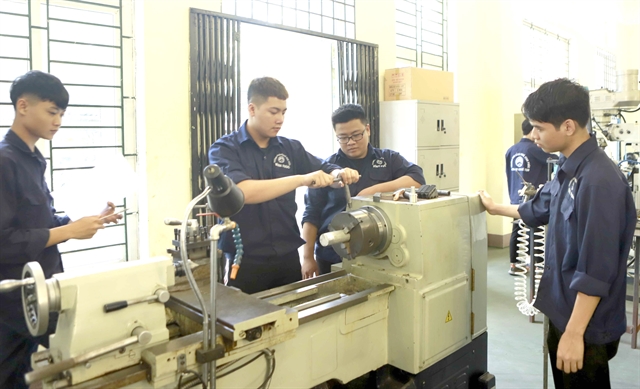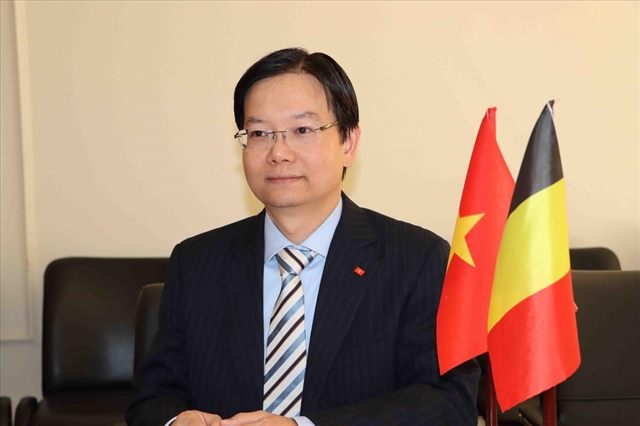 Society
Society

Industry 4.0 had brought with it a fresh wave of new technology that required new skills to use, and if Vietnamese educational institutions did not keep up with the times, Vietnamese workers were in danger of losing out at home, experts have said.

|
| Students at the Mechanical Engineering Faculty under the Vĩnh Phúc Vocational College practice using a universal lathe. — VNA/VNS Photo Hoàng Hùng |
HÀ NỘI — Industry 4.0 had brought with it a fresh wave of new technology that required new skills to use, and if Vietnamese educational institutions did not keep up with the times, Vietnamese workers were in danger of losing out at home, experts have said.
The Ministry of Science and Technology recently released a draft on key technologies in Industry 4.0 such as artificial intelligence, the internet of things, big data, block chain, nano devices, natural cells, materials, hydrogen energy, self-driving vehicles, self-flying devices, photonic and light technology, neural technology, bioinformatics, precision agriculture, personalised medicine, renewable medicine and tissue engineering.
Associate Professor Nguyễn Văn Thuận, head of the Biotechnology Faculty at the HCM City International University, told Thanh Niên (Young People) newspaper that these were trending technologies that had been prioritised for development in major countries around the world.
“However, Việt Nam is still new to most of these fields. New universities only have access to limited amounts of this technology, making it difficult to train as a discipline or subject. What we need is a contingent of lecturers, programmes and investment in new facilities,” he said.
Once new technology appears, new skills are needed so that workers can master the latest advances.
Nguyễn Chí Trường, director of the Department of Vocational Skills under the Directorate of Vocational Education and Training, said the World Skills Competition held last year included 24 future occupations.
These occupations had resulted from research conducted by scientists and businesses around the world related to new technologies, and new thinking was being prioritised in many countries, he said.
Change to adapt
Trường said to adapt to global development trends, there needed to be a change in thinking surrounding education, with new skills acting as the motivation to develop new training programmes.
“This takes time and changes a lot of things. Policymakers should also use labour skills as their target to adopt appropriate development policies in the future. In the immediate future, we need to invest in basic skills but also ensure diversity and interdisciplinary training to be ready to adapt," Trường said.
Because universities in Việt Nam were not training students in these new skills and technology, human resources were very limited, and some large enterprises had to spend a lot of money importing foreign technologies and qualified staff to operate them, he said.
Universities and vocational schools needed to develop training plans quickly to follow this trend, otherwise they would lose money.
Trương Ngọc Hoàng, director of Festo Vietnam Company, also told Thanh Niên that as jobs changed, training institutions and students must also change.
“Universities, colleges and intermediate schools must quickly research and develop programmes to meet new requirements to teach skills and technology. Foreign companies are investing more and more in Việt Nam, if we do not train students to meet both the quality and quantity of human resources needed, workers from other countries will inevitably replace them,” he said.
Nguyễn Khánh Cường, principal of the Lilama 2 International Technology College, said the skill 21st century citizens needed was the ability to adapt to changes that were happening every day, which universities and colleges had so far failed to keep up with. — VNS




